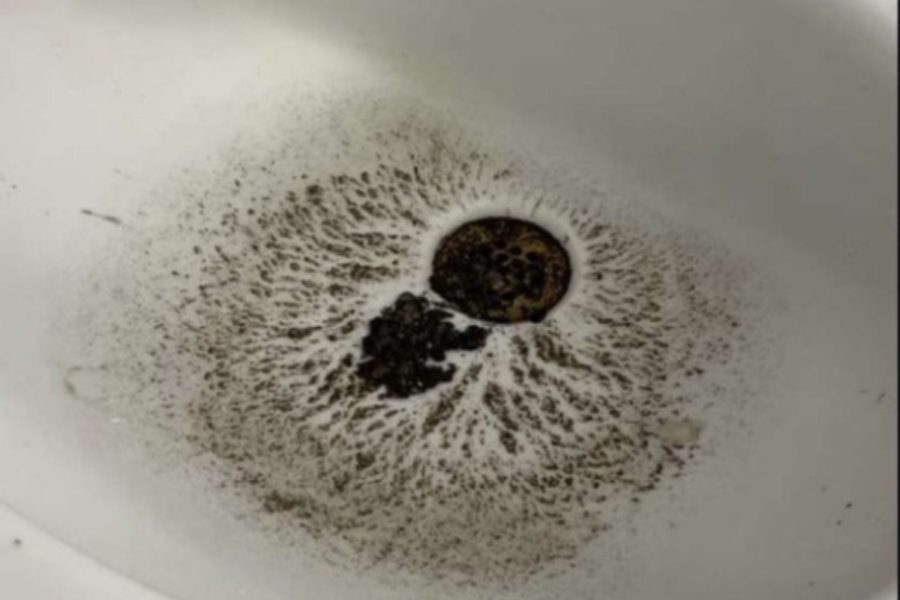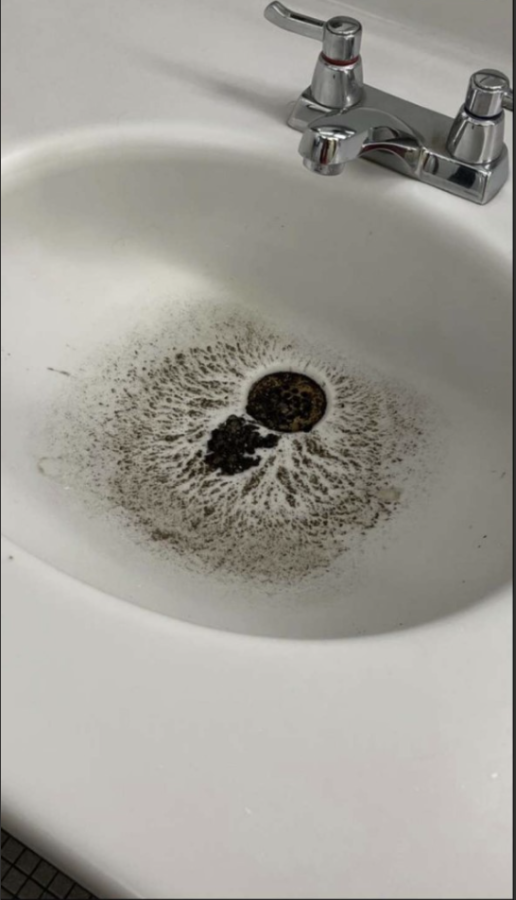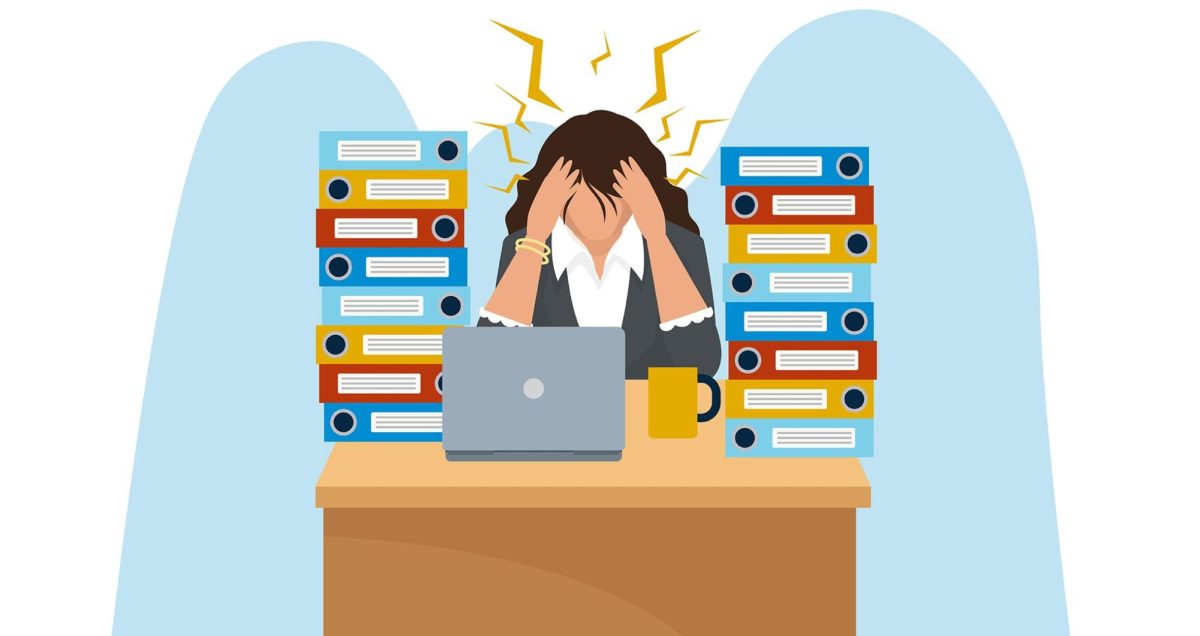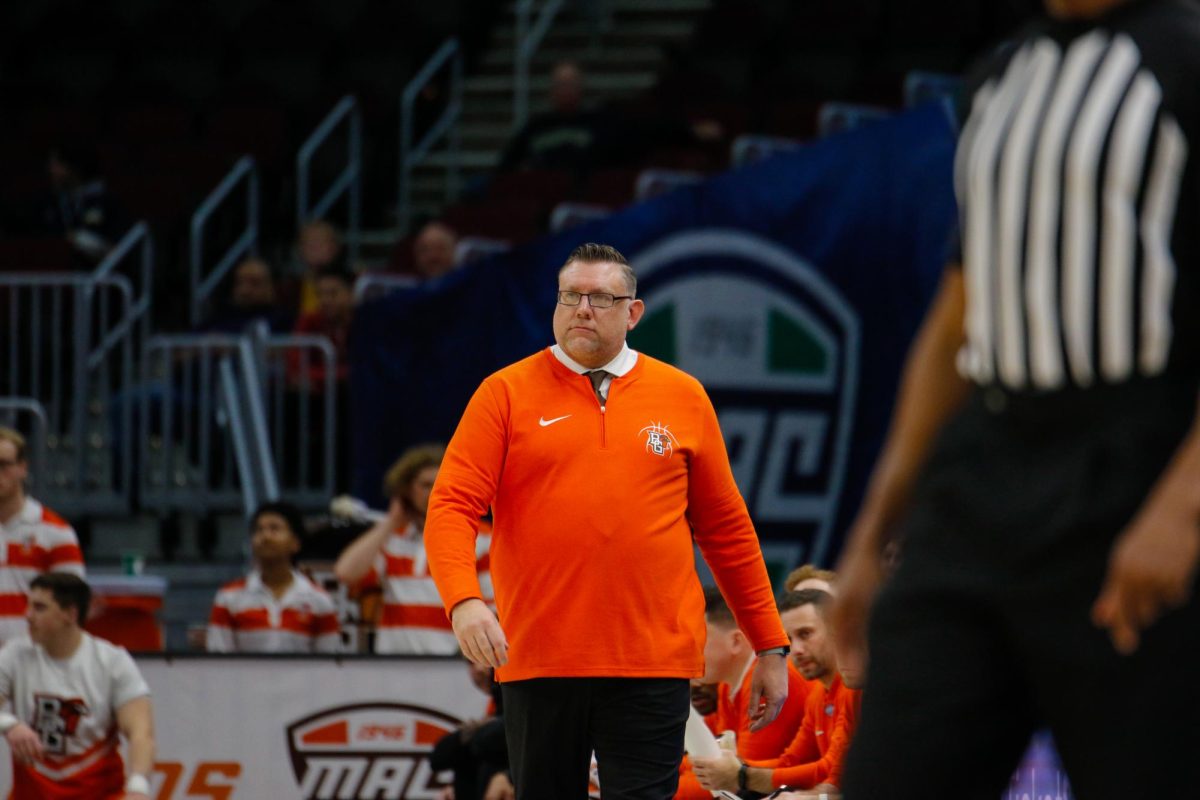Students live in hazardous conditions on campus
Mold found in McDonald Residence Hall
February 1, 2023
Students at Bowling Green State University are living in dormitories overrun with hazardous mold and pest infestations, according to evidence provided by building residents and residence life staff.
Residents are to expect bumps in the road when it comes to adjusting to life on a college campus. Making new friends and learning about who you are, are all parts of the college experience. However, students living in McDonald and Kreischer Hall have had to deal with much more than they bargained for. Everything from infestations of bugs, poor living conditions and lack of response from the administration has led to frustration and unrest inside these places of living.
Those students, who are living in McDonald and Kreischer Halls, say they’ve experienced side effects from exposure to mold, swatted away sewer flies in the dorms’ bathrooms and had pressurized water shoot up from the floors of their buildings.
Residence hall staff, who spoke to Falcon Media on the condition of anonymity, said they were fielding up to one work order per day in the buildings.
“Shitty.”
That’s how former McDonald Hall resident advisor Maggie Spicer described the building’s living conditions in McDonald Hall.
Spicer’s eight-week stay in McDonald Hall may have had long-term effects on her health, according to her health providers.
Long-term mold exposure can cause many health issues, most of which relate to respiratory problems such as upper respiratory infections, according to the Center for Disease Control and Prevention. Experts also say mold is known to cause insomnia, memory loss and even numbness in extremities.
In addition to mold, residents also said they have seen backed-up sinks and sewer flies in McDonald Hall.
The pests have been found to be a contributing factor to asthma in people who are exposed to them over a long period of time and are also known to carry bacterial infections that they can transfer over to people who come into contact with them.
Spicer said she saw multiple instances of mold in McDonald Hall, and experienced physical symptoms of long-term mold exposure while living there.
“I filed work orders regarding mold found on my floor, as well as advised residents on how to do it themselves,” Spicer said. “I mean what do you expect? An old building, with no AC or air circulating at all, mix that with loads of water damage and humidity and you have yourself a mold factory.”

Mold grows in damp, musty environments like the one Spicer described, according to the Center for Disease Control and Prevention.
The Center says that when people living in environments with these conditions are likely to come into contact with mold to some extent, and even if students like those living in McDonald and Kreischer are not in direct contact with the mold itself, they can still be breathing in mold just from the air in the building.
Spicer said she witnessed multiple bathrooms flooding, ceilings leaking and even water spewing from the floor during a rainstorm while working in McDonald Hall.
The dorm’s bathroom had water leaking from the ceiling for weeks, causing Spicer to file multiple work orders to try and get it fixed.
Experts said delays or negligence in the mold removal or cleaning process puts anyone living in the environment at risk of long-term mold exposure.
But when Spicer finally resigned from her position, the ceiling was still leaking.
“I loved being an RA, but my doctor and I both agreed that living there, especially with the possibility of prolonged mold exposure, was just too damaging to my health. I couldn’t stay,” Spicer said.
McDonald Hall isn’t the only BGSU dorm with health hazards. On the other side of campus, Kreischer Hall residents experience issues of their own.
Phillips said there were plenty of health concerns to be found in the dorm, including mold in the ventilation systems, fecal matter that remained in the building’s showers for at least a week and no air conditioning creating hot, humid and mold-prone conditions.
“It was absolutely awful. It was hot all year round, and actually unbearable in the early Fall semester,” said Phillips. “I remember going to my sisters’ [house] to sleep because she had air conditioning. There was always trash in the hallways, it smelled bad and the bathrooms were terrible, shit in the shower, trash overflowing in cans and sticky floors.”
These aren’t the first reports of sub-par living conditions at BGSU.
According to a September article from 13ABC in Toledo, a parent of a BGSU student living in Kreischer was worried there was mold in their child’s room, but BGSU said that they had conducted their own tests into the matter and the experts found no mold to speak of.
The living conditions reported by residence life staff, students and parents may come as a surprise to outsiders, who may expect that housing that costs on-campus students more than $10,000 per year at “The #1 School in Student Satisfaction” may be more livable. “It was really disappointing to be looking forward to college for so long, and then I get here and have to deal with a gross dorm building,” said a first-year resident of McDonald Hall who spoke with Falcon Media on the condition of anonymity.
“It just makes you feel like the university doesn’t care about our health and safety as long as they already have our money, especially when we have tried to tell the administration about things like this and they don’t do anything to help,” the student said.
Still, BGSU’s Office of Residence Life remains silent on the issue.
Falcon Media reached out to residence life staff on multiple occasions for comment on this story. No response was received.
Falcon Media reached out again to the administration on Jan. 30 for a comment on the living conditions.
“Bowling Green State University conducts daily preventative maintenance in all facilities, and we will continue to focus and conduct health and safety inspections of all residence halls,” the BGSU administration said. “While we have not received any current reports addressing these concerns, we want to thank our students and encourage them to share any facility concerns with us by submitting a work order to Campus Operations or contact their residence hall director or resident advisor.”
If you currently live in a residence hall on campus and are experiencing hazardous living conditions, email us at bgfalconmedia@gmail.com.














